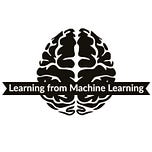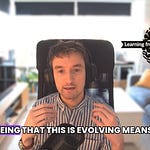The episode features Paige Bailey, the lead product manager for generative models at Google DeepMind. Paige's work has helped transform the way that people work and design software using the power of machine learning. Her current work is pushing the boundaries of innovation with Bard and the soon to be released Gemini.
Paige discusses her background in geophysics and applied math and how she got interested in machine learning. She talks about the advancements in machine learning tools and the challenges in designing systems for software development. She shares her thoughts on unanswered questions in machine learning and the potential of multimodal models.
She highlights the importance of communication, community building, and believing in people rather than acronyms in the machine learning field. She emphasizes that there are no limits in the field and encourages individuals to focus on building something great that delights them and others.
Paige also highlights the importance of doing what interests you and not feeling guilty about deviating from expectations. She discusses the uncertainty of the future and the need to be the one building it. Additionally, Paige provides tips for staying up-to-date with the latest techniques and navigating the gap between hype and reality in AI. She concludes by reflecting on how a career in machine learning has taught her to appreciate the human connection.
Takeaways
Here are 🔟 key takeaways from our conversation:
1️⃣ Follow your passions and trust your instincts, even if it goes against the expectations of others.
2️⃣ Prioritize finding the best solution for your problem, rather than chasing the latest trends.
3️⃣ Generative models can empower individuals with learning disabilities, enabling personalized learning experiences that cater to their unique needs and learning styles.
4️⃣ The advancements in Large Language Models have revolutionized software development, assisting with code generation, code explanation, error handling, and debugging.
5️⃣ Get ready for Gemini, an upcoming multimodal model from Google DeepMind that seamlessly integrates text, code, audio, video, and images.
6️⃣ Different sizes of language models, such as Meta's LLaMA and PALM, accommodate various trade-offs like latency, performance, and ease of deployment.
7️⃣ Smaller models are more versatile, efficient in different locations, and can achieve comparable performance to larger models when fine-tuned with high-quality datasets.
8️⃣ While using generative models, it's important to consider the associated risks, as their accuracy and reliability are still being explored. For instance, they may be useful in predicting stock prices but not suitable for managing retirement funds.
9️⃣ Embrace emerging technologies and have confidence in their potential.
🔟 Exploring AI and ML capabilities allows us to recognize and appreciate the aspects of humanity that machines cannot replicate. As AI becomes increasingly integrated into our lives, it reinforces the importance of human connection.
Learning from Machine Learning, a podcast that explores more than just algorithms and data: Life lessons from the experts.
Resources to learn more about Paige Bailey
References from the Episode
Diamond Age - Neal Stephenson - https://amzn.to/3BCwk4n
Google Deepmind - https://www.deepmind.com/
Google Research - https://research.google/
Jeff Dean - https://research.google/people/jeff/
Oriol Vinyals - https://research.google/people/OriolVinyals/
Roy Frostig - https://cs.stanford.edu/~rfrostig/
Matt Johnson - https://www.linkedin.com/in/matthewjamesjohnson/
Peter Hawkins - https://github.com/hawkinsp
Skye Wanderman-Milne - https://www.linkedin.com/in/skye-wanderman-milne-73887b29/
Yash Katariya - https://www.linkedin.com/in/yashkatariya/
Andrej Karpathy - https://karpathy.ai/
Resources to learn more about Learning from Machine Learning










